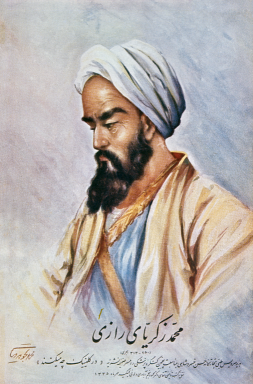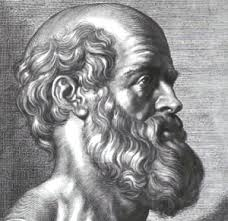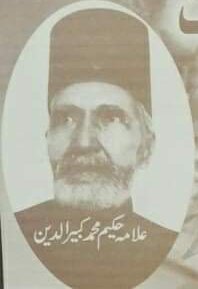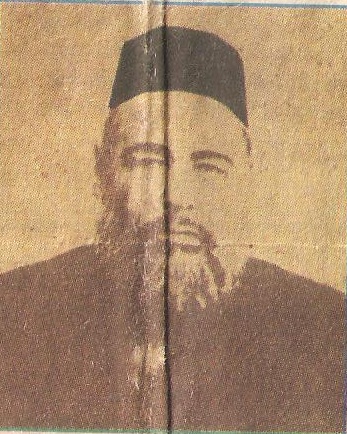About Unani Medicine
- The Unani or Greeco-Arabic system of medicine was introduced by Hippocrates. However this system later extensively developed by Arab physicians. The basic theory of the Unani medicine is based on the concept that perfect balance between the Elements (Arkan), Humors (Akhlat) and Temperament (Mizaj) is necessary for good health. Every individual has inherent powers of self-preservation, called Quwat-e-mudabira badan. The four humours present in the human body are Balgham (Phlegm), Dum (Blood), Safra (Bile) and Sauda (Black bile), the example of colour is for character and matter. The excessiveness of these humors determines an individual`s Temperament or Mizaj which again could be of four kinds: Damvi (Sanguine or Plethoric), Safravi (Choleric or Bilious), Balghami (Cold or phlegmatic) and Saudavi (Melancholic). Any change in character or quantity of humor, Temperament can lead to disease.


Diagnosis is based on detailed clinical examination, Pulse, Urine, and stool examination, nowadays all the modern diagnostic tools are utilized to help for their diagnosis to confirm and have better documentation.
Treatment is based on Humor disturbances and Temperament changes. There are four types of treatments. Dietotherapy (Treated with alteration in diet and restriction of certain food items), Pharmacotherapy (Herbs, Animal Origin drugs & Minerals, single or in compound form), Regimen Therapy (Specialized procedures such as Massage, Exercise, Cupping Leeching, Emesis, Enema, etc.) & Surgery.
History of Unani Medicine
Great Unani physicians such as Askhaliboos (Aesculapious)1300B.C has mentioned regarding dietotherapy and herbal therapies. Unani Medicine is based on the teachings of Buqrath (Hippocrates) (460-370 BC) on the concept of 4 humors Khoon (Blood), Balgham(Phlegm), Safra(Bile) and Black bile. Buqrath (Hippocrates is Father of Unani Medicine he is also considered as Father of Medicine. Still his oath is followed by every medical graduate in the name of Hippocratic Oath. The Unani system of medicine, as it is known by its name, is indebted to Greece for its origin. It was only the Greek philosopher-physician Buqrath (Hippocrates) (460–377 BC) who gave him the reputation of science by removing medicine from the limits of superstition and witchcraft. The theoretical structure of Unani system of medicine is based on the teachings of Buqrath.


Jalinoos (Galen) (131-210 AD) followed the Hippocrates methods accepting the doctrine of the humors, which regarded the human body, he considered any alteration either by character or quantity or composition of humor leads to disease. Rhazes (Abu Bakr Zakria Rhazi) (854-925 AD) was a great scholar and wrote more than 200 treatises on various topics of medicine. He has mentioned Six essential factors of life (Asbaab e Sitta Zarooriya), He is the first person to distinguish between Chicken Pox and Small Pox.
Abu Ali-Ibn-e-Sina (Avicenna) (980-1037 AD) popularly known as “Shaikh ur Rayees” was a renowned Unani Arab physician, his “The Canon of Medicine” an attempt to reconcile the doctrines of Galen and Aristotle, was the standard medical work for several centuries in Europe and used as a textbook as late as 1650 AD.
Unani Medicine in India
The Unani system of medicine, as it is known by its name, is indebted to Greece for its origin. It was only the Greek philosopher-physician Buqrath (Hippocrates) (460–377 BC) who gave him the reputation of science by removing medicine from the limits of superstition and witchcraft. The theoretical structure of Unani system of medicine is based on the teachings of Buqrath.
Rhazi (854-925 AD) and Ibncina (980-1037 AD) built a magnificent building on the basis of Bukharat method. Unani medicine arrived in India through Arabs and it soon became strong in the Indian soil. The Dehli sultanates, the Khilji and Tughlaq sultans, and the Mughal emperors, gave state patronage to those scholars and nominated some of them scholars and practitioners into state employees and court physicians. The general public got immediate support from this system and quickly spread throughout the country. Unani medicine got a shock during the British rule and its development was hindered due to lack of state patronage. But since this method was popularly believed, this method was prevalent.
Hakim Ajmal Khan Delhi (1868–1927), a noted scholar and physician of Unani medicine, was a leading supporter of this method in India. In other provinces of India, there have been learned scholars of Unani medicine. Hakim Abdul Aziz Saheb (1855–1911) and Hakim Abdul Hameed Saheb, etc. were noted scholars of Unani medicine system in Lucknow, capital of Uttar Pradesh. After India’s independence, Unani system of medicine was recognized as the Indian system of medicine and efforts were made for its development and propagation.
THE GLOBAL IMPORTANCE OF UNANI
Life nowadays has become more demanding and strenuous with modern technologies and comfort. Hakim Rais Unani Medical College and Hospital wants to bring awareness towards the wholesome wellness of a human being. Wellness is a product having a firm connection with Health, Environment and Awareness, this is a concept which the entire world needs to understand. Apparently, these subjects that the western countries consider to be disconnected and independent are believed to be connected to Unani. Unani is rapidly becoming a worldwide phenomenon.
The reason why Unani has always been a mainstream alternative to modern medicine in India is because of the spiritual idea that has always been embedded in our Indian culture and psychology.
KEY STRENGTHS OF UNANI
The very unique concept of Temperament (Mijaz) believes that every individual has its own has its own unique Mijaz according to their humoral constitution,
The Holistic approach in Unani takes the entire constitution of an individual and the respective lifestyle for diagnosing and recommending the treatment
Through the Six essential factors of life Unani lays great importance on the prevention of the disease and promotion of existing health.
Unani makes use of some special Regimenal therapies such as cupping (hijama), leech therapy (taliq), Vaporisation (bukhoor) etc. to eliminate
Unani believes that the real physician the body’s intrinsic power of healing and maintaining and maintain its normal state of health.
Future after BUMS
A BUMS doctor can work in following sectors after the completion of the degree:-
- General Practice
- Research in Unani system of Medicine
- Hospital and Healthcare Administration
- Teaching professions after PG courses (MD/MS)
- AYUSH Govt. Medical Officer
Career Options after Bachelor Of Unani Medicine And Surgery
Today we are having a lot of opportunities available for BUMS graduates. These are the fields that are available for a BUMS graduate to build a career successfully:-
- General Practice / Clinical practice.
- Research / Academic / Teaching.
- Hospital and Healthcare Administration.
- Drug Manufacturing & Formulation.
- Health Supervisor
Future Degrees after BUMS
A BUMS doctor can go for following degrees after the completion of the degree:-
- MD/MS (Unani)
- MBA (Hospital Healthcare Management)
- G. Health Sciences
- G. Nutrition
Miscellaneous
Students can also go for Medical transcription, medical tourism, medical event management, medical journalism, medical photography and documentation. BUMS graduates can complete LLB and work as legal medical advisor and there lies is a great potential in manufacturing of equipments required for Unani treatments like Ilaj Bit Tadbeer and also eligible for all govt. competition that based on graduate qualification like U.P.S.C. etc.
